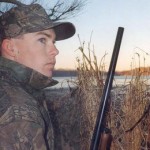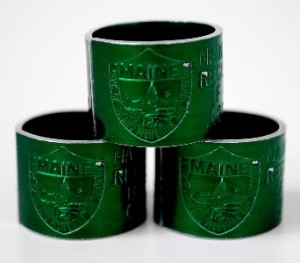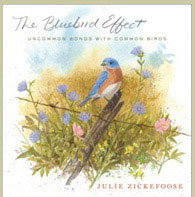 The onset of waterfowl hunting has spawned a lively discussion on VTBirds about ways for birders to get more credit for supporting conservation efforts. As I blogged last month, we get little respect from our contributions for Federal duck stamps and even Ducks Unlimited memberships. My friend Scott put it like this on the list:
The onset of waterfowl hunting has spawned a lively discussion on VTBirds about ways for birders to get more credit for supporting conservation efforts. As I blogged last month, we get little respect from our contributions for Federal duck stamps and even Ducks Unlimited memberships. My friend Scott put it like this on the list:
The thing is that the current system doesn’t provide a clear way for state and federal managers to know whether the purchaser of a duck stamp is extractive** or non-extractive oriented (or both) in his / her interests.
Consequently, when conservation issues come before legislative or administrative bodies, the voice of all those who might have non-extractive ideas / wishes are very difficult to measure, whereas the licenses and stamps are widely quoted as the constituency interested in extractive issues.
This is not to say that extractive and non-extractive conservationists don’t have many opinions in common. Nor to suggest that there are not many of us who support both extractive and non-extractive organizations and activities. There are.
It is just that there is a huge body of non-extractive recreationalists, citizen scientists, hikers, birders, feeder-watchers, lepidopterists, dragonfly lovers, park visitors, etc. who really don’t currently have a place at the table.
A non-extractive conservation support button, stamp, tag, etc. would give that audience a way to have its presence quantified and votes counted. To me, that has great value.
** Scott explains: To me, these seem like a nice terms to delineate between environmental management practices that are purposed to provide harvestable populations vs. those that are designed to maximize diversity / conserve ecosystems. The words Hunters and Birders tend to polarize and divide. People may be both, and have both objectives in mind in certain circumstances.
One of the interesting references in the discussion is the program in Maine to sell bands for binoculars to support bird conservation. They describe like this:
 Maine’s hunters and anglers through license fees and equipment taxes have paid for the bulk of these efforts. With declining funds available for non-game and endangered species work, our bird conservation efforts now also depend on Maine’s birding community to help conserve what you care about. For years bird bands have helped biologists understand migratory bird population trends and habitat needs. Now the Maine Birder Band is available as a tool for wildlife watchers of all stripes to support the non-game and endangered species conservation efforts of your Wildlife Department.
Maine’s hunters and anglers through license fees and equipment taxes have paid for the bulk of these efforts. With declining funds available for non-game and endangered species work, our bird conservation efforts now also depend on Maine’s birding community to help conserve what you care about. For years bird bands have helped biologists understand migratory bird population trends and habitat needs. Now the Maine Birder Band is available as a tool for wildlife watchers of all stripes to support the non-game and endangered species conservation efforts of your Wildlife Department.
The Maine Birder Band can be proudly worn on your binocular strap to show your support for bird conservation. The number on each band will be registered to the buyer, and bands include a phone number where lost and recovered optics can be reported allowing us to notify the registered owner.
So, there has been some constructive posts on this subject on the list serve and it is obvious that many Vermont (and elsewhere) birders are willing to put their money where their mouth is. We’ll see where this goes but it’s good to get a positive discussion going.
hunter photo by thefixer birder band photo Maine Inland Fisheries and Wildlife
If you enjoyed this post, please consider leaving a comment and subscribing by RSS feed or via email to have future articles delivered to you.


